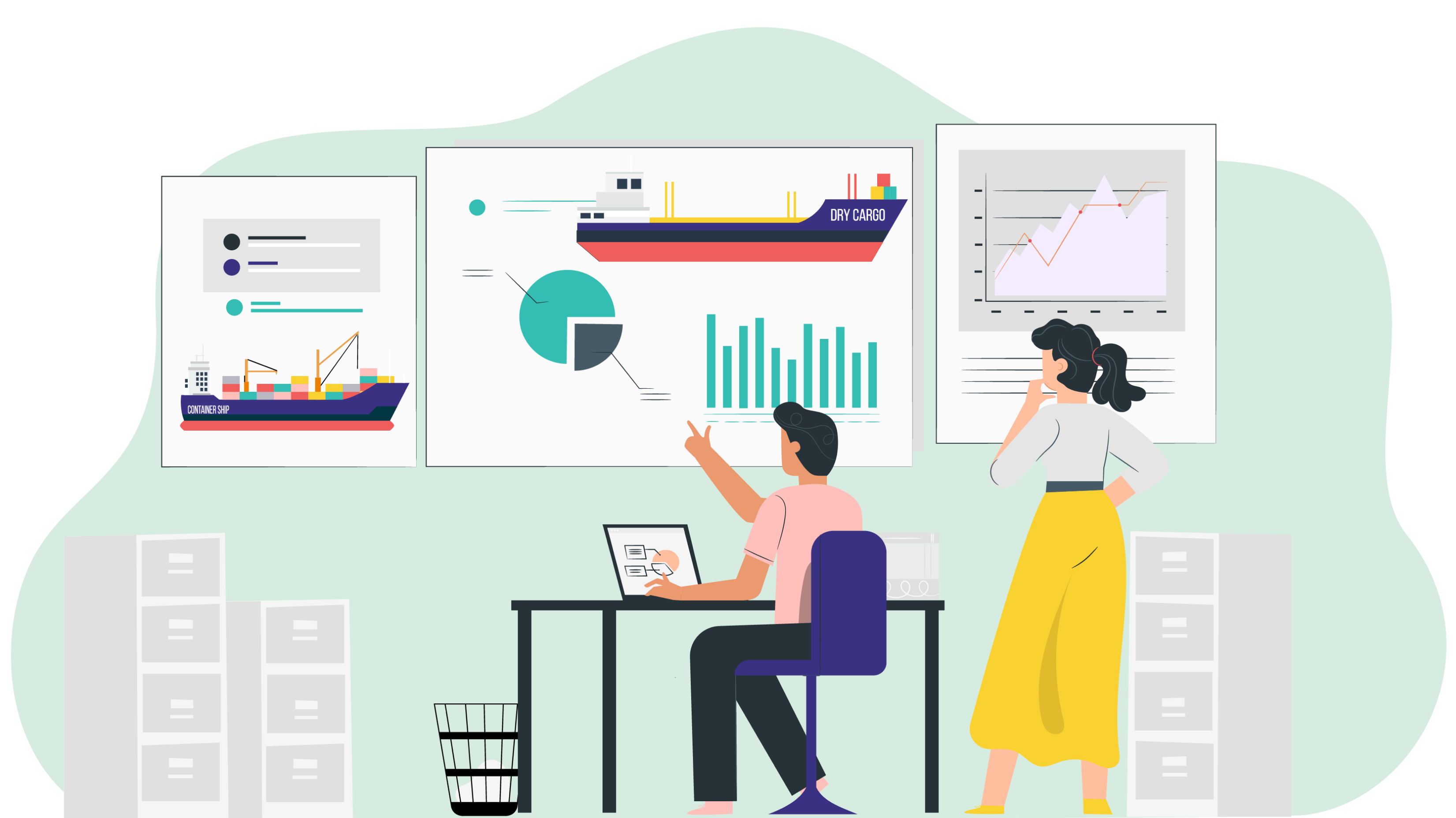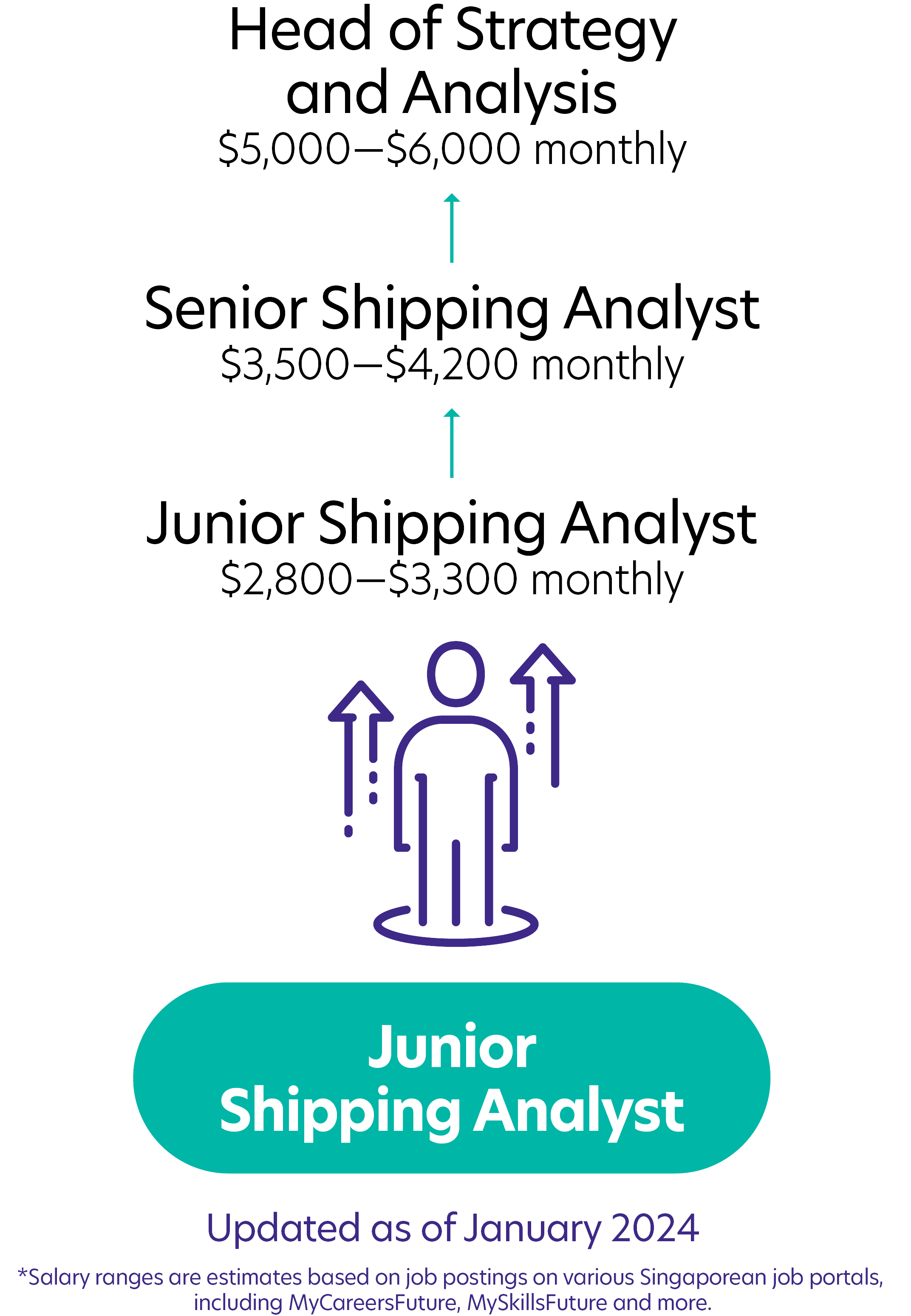
Shipping Analysts develop tactical business proposals by conducting research and analysing data on new and emerging markets. They also identify problems in existing business processes to improve efficiency.
- Analyse and anticipate market developments.
- Analyse and enhance operational performance.
- Formulate strategic business plans.
- Service clients’ accounts for the provision of data and research.
Note
Nature of Work
You will need excellent report-writing skills to create comprehensive business intelligence reports from market research.Key Advice
Develop strong analytical skills and a deep understanding of maritime market dynamics to excel in creating insightful shipping reports.-
Entry RequirementsEntry Requirements
-
A bachelor’s degree in Maritime Studies, Shipping, Business or Economics is required.
-
Work experience is highly valued.
-
-
Possible PathwayPossible Pathway

Business Data Analysis
Proficiency in analysing shipping data to identify trends and insights crucial for strategic decisions.Business Performance Management
Ability to assess and manage the performance of shipping operations against business objectives.Demand Analysis
Skilled in evaluating market demand to forecast shipping needs and optimise service offerings.Market Profiling
Expertise in creating detailed market profiles to understand customer segments and tailor shipping solutions.Market Research
Conducting in-depth research to stay abreast of industry developments and the competitive landscape in shipping.Communication
Effective communication skills for presenting analytical findings and collaborating with diverse teams.Computational Thinking
Strong computational skills to analyse complex shipping data and derive actionable insights.Digital Literacy
Proficiency with digital tools and platforms for shipping analysis and data management.Problem-Solving
Ability to identify and solve complex problems in shipping operations and market strategies.Teamwork
Collaborative skills to work effectively in team environments, contributing to shared objectives in shipping analysis.Related Job Roles
Explore Other Programmes
Browse AllYou have bookmarked your first item!
Find it in My Discoveries with insights on your interests!









